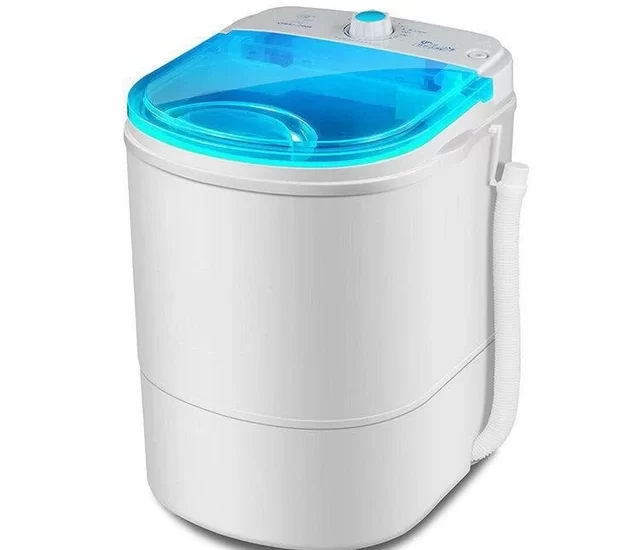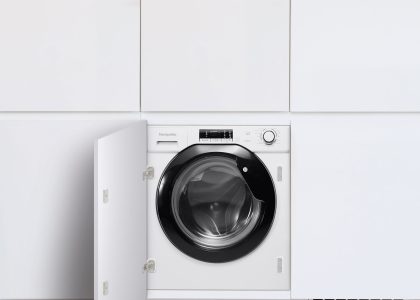How much electricity does a washer and dryer use
Modern life is filled with appliances that make our lives easier, but they also come with an energy cost. Laundry is a necessity, and washing machines and dryers are major players in our home energy consumption. Understanding how much electricity these appliances use is crucial for making informed choices, saving money, and reducing our environmental impact.
 Unraveling the Energy Consumption of Washing Machines
Unraveling the Energy Consumption of Washing Machines
How much electricity does a washer and dryer use
Washing machines, the first step in the laundry process, come in various sizes, types, and technologies. These differences directly affect their energy usage:
- Top-loading vs. Front-loading: Front-loading washing machines generally use less water and energy than their top-loading counterparts. This is due to their more efficient design that allows for better water and detergent circulation.
- Energy Star Certification: Look for the Energy Star label, which signifies that the appliance meets strict energy-efficiency standards. Energy Star washing machines can save you significant amounts of energy and money over their lifetime.
- Water Efficiency: Washing machines with higher water efficiency ratings use less water per cycle, resulting in lower energy consumption.
- Wash Cycle Features: Different wash cycles, like “quick wash” or “eco-wash,” offer variations in water and energy usage. Choosing the appropriate cycle for your laundry load can make a difference.
Factors Affecting Washing Machine Energy Consumption:
- Water Temperature: Using cold water for washing is significantly more energy-efficient than using hot water. Most laundry detergents are effective in cold water, making this a simple energy-saving step.
- Load Size: Washing full loads is more energy-efficient than washing smaller, partially filled loads. This ensures the machine operates at its optimal efficiency.
- Frequency of Use: The more frequently you use your washing machine, the higher your energy consumption.
- Water Hardness: Hard water, which contains high levels of minerals, can affect detergent effectiveness and require higher water temperatures for cleaning. This can lead to increased energy consumption.
 Deciphering the Power Consumption of Dryers
Deciphering the Power Consumption of Dryers
How much electricity does a washer and dryer use
Dryers, the final step in the laundry process, are often seen as energy guzzlers. While they do require significant energy, understanding their consumption is vital for minimizing costs and reducing environmental impact.
- Dryer Types: Electric dryers are the most common type, relying on heating elements to dry clothes. Gas dryers use natural gas or propane for heat, which can be more energy-efficient than electric dryers depending on local gas prices.
- Energy Efficiency: Look for Energy Star certified dryers, which offer significant energy savings compared to traditional models.
- Dryer Features: Features like sensor drying technology, which automatically adjusts drying time based on the moisture level of clothes, can help reduce energy consumption.
- Vent Efficiency: Ensuring proper ventilation for your dryer is crucial. A clogged vent can restrict airflow and cause the dryer to run longer, increasing energy consumption.
 Factors Affecting Dryer Energy Consumption:
Factors Affecting Dryer Energy Consumption:
How much electricity does a washer and dryer use
- Load Size: Drying a full load is more efficient than drying smaller loads.
- Type of Clothes: Heavy fabrics like towels and jeans require more energy to dry than lighter fabrics like shirts and dresses.
- Drying Time: Adjusting drying time based on the moisture level of clothes can significantly reduce energy consumption.
- Room Temperature: Drying clothes in a warmer room can decrease drying time and save energy.
 Quantifying Energy Use: Understanding Kilowatt-Hours (kWh)
Quantifying Energy Use: Understanding Kilowatt-Hours (kWh)
Kilowatt-hours (kWh) are the standard unit for measuring energy consumption. To understand the energy use of your washing machine and dryer, you’ll need to know their energy consumption in kWh per cycle.
Typical Energy Consumption:
- Washing Machine: The average energy consumption for a washing machine is 0.5 to 1.5 kWh per cycle. Energy Star models typically fall within the lower end of this range.
- Dryer: The average energy consumption for a dryer is 2 to 4 kWh per cycle, depending on the load size, type of clothes, and drying time.
Calculating Your Laundry’s Energy Consumption:
- Determine the number of cycles per week: Count the number of times you run your washing machine and dryer each week.
- Multiply by the average kWh per cycle: For example, if you run your washing machine 3 times a week and its average kWh per cycle is 1 kWh, your weekly energy consumption for washing is 3 kWh (3 cycles x 1 kWh per cycle).
- Calculate your monthly energy consumption: Multiply your weekly energy consumption by the number of weeks in a month.
- Estimate your cost: Multiply your monthly energy consumption by your electricity rate per kWh.
 Tips for Saving Energy and Money on Laundry
Tips for Saving Energy and Money on Laundry
How much electricity does a washer and dryer use
By making conscious choices, you can significantly reduce the energy consumption of your washing machine and dryer, saving money and lowering your environmental impact:
- Choose cold water washing: Washing clothes in cold water is significantly more energy-efficient than using hot water.
- Wash full loads: Ensure your washing machine and dryer are running at their optimal efficiency by washing full loads.
- Optimize drying time: Adjust the drying time based on the moisture level of clothes to avoid over-drying and wasted energy.
- Clean the lint trap regularly: A clogged lint trap can restrict airflow and cause your dryer to run longer, increasing energy consumption.
- Line dry whenever possible: Air-drying clothes outdoors is the most energy-efficient way to dry them.
- Consider a clothesline: If space permits, a clothesline can be an excellent way to line dry clothes outdoors.
- Invest in energy-efficient appliances: Choose Energy Star certified washing machines and dryers for significant energy savings over their lifetime.
- Utilize eco-friendly detergents: Many detergents are formulated to clean effectively in cold water, saving you energy and money.
 Types of washing machines:
Types of washing machines:
How much electricity does a washer and dryer use
Here are the main types of washing machines:
Loading Type:
- Top-loading: These have a lid on the top, allowing you to load clothes from the top. They typically use an agitator in the center to wash clothes.
- Front-loading: These have a door on the front, and you load clothes from the front. They use a rotating drum to wash clothes and often use less water than top-loaders.
- Portable: These are smaller machines that are often used in apartments or small spaces. They can be easily moved and don’t require permanent plumbing.
Washing Technology:
- Conventional: These use a rotating drum to wash clothes and typically use more water than other types of washing machines.
- High-efficiency (HE): These use less water and energy than conventional washing machines. They often have a slower spin cycle, which helps to remove more water from the clothes.
- Impeller: These use a rotating impeller to wash clothes. They are typically more affordable than other types of washing machines.
Other Types:
- Washer-dryer combo: These machines combine a washing machine and dryer in one unit. They are a good option for people who have limited space.
- Stackable: These washing machines and dryers can be stacked on top of each other to save space.
- Smart: These machines can be controlled with a smartphone app. They often have features like remote start and cycle monitoring.
Key Considerations:
- Space: How much space do you have for a washing machine?
- Budget: How much are you willing to spend on a washing machine?
- Features: What features are important to you? For example, do you need a machine with a specific washing cycle, or do you want a machine with a timer?
- Energy efficiency: How important is energy efficiency to you?
- Water usage: How much water do you want to use?
The best type of washing machine for you will depend on your individual needs and preferences.
 Conclusion: Balancing Efficiency with Convenience
Conclusion: Balancing Efficiency with Convenience
While laundry is a necessity, understanding the energy consumption of our washing machines and dryers is vital for making informed choices. By choosing energy-efficient appliances, utilizing smart laundry habits, and taking advantage of alternative drying methods, we can significantly reduce our energy footprint and enjoy the convenience of modern laundry technology. Remember, every small step towards energy efficiency contributes to a greener future.





